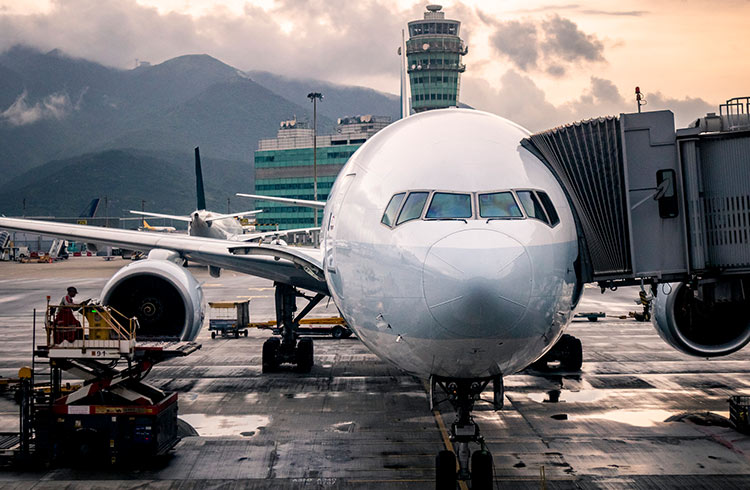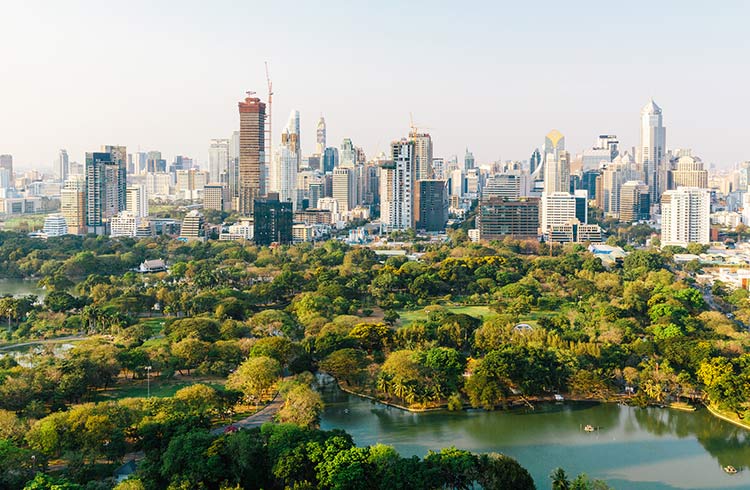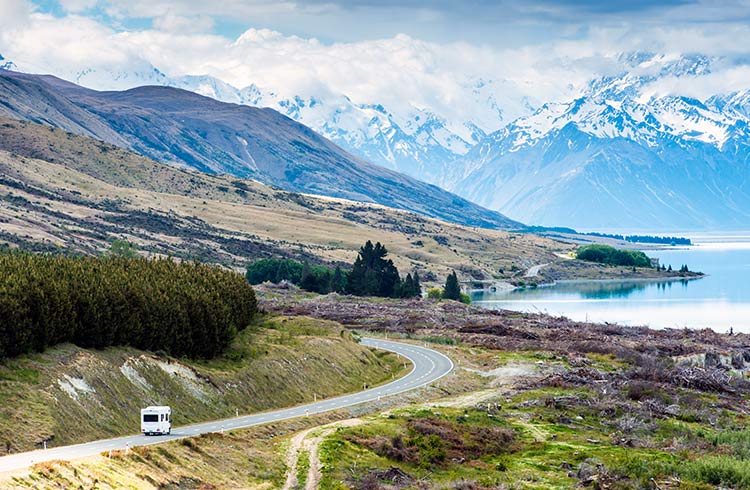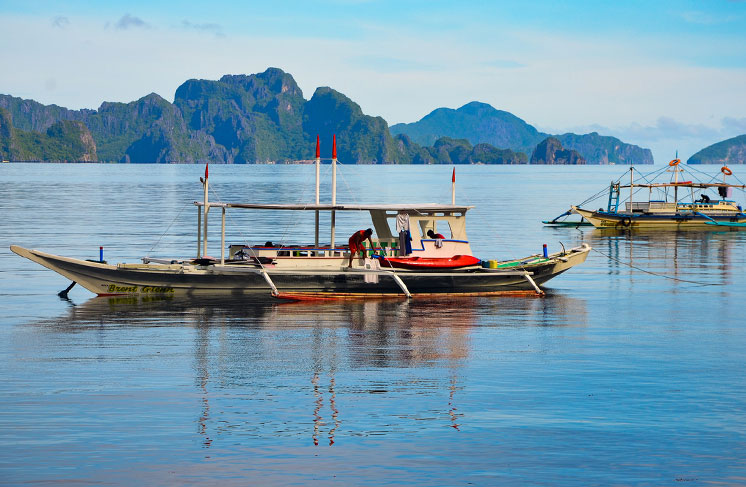Can You Be A Responsible Traveler If You Choose To Fly?
Before you take off on your next trip, minimize harm to the planet by flying with sustainability in mind.
 Photo © Getty Images / DuKai
Photo © Getty Images / DuKai
Over the past 50 years, air travel has opened up the world like never before. But with it comes a price – and the environment is paying. So, now that planes are taking off again, how can we reconcile our love of travel and all its joys with our love of the natural world?
- Sustainable travel
- The cost of flying
- Can flying ever be sustainable?
- What are airlines doing?
- Time to change our travel habits
- 7 steps to greener air travel
Sustainable travel
Who could forget the image of climate activist Greta Thunberg triumphantly disembarking in New York from a zero-emissions sailing boat? After her 15-day voyage, the then 16-year-old Swede said she felt ‘extremely lucky’ to be taking part in a UN climate summit. She was indeed lucky because many of us would love to travel in as sustainable a way. But sailing across the globe is rarely viable.
It’s a bitter contradiction for travelers, that the natural world we love so much is being impacted by our very enjoyment of it. But the ‘flight shame’ movement that originated in Thunberg’s home country is forcing travelers to think hard about the effect they’re having on the environment.
It can be helpful to remember the enormous good travel does good in the world – we needn’t feel guilty for providing tourism jobs, helping cultures better understand each other, or travel’s ability to help us appreciate history and the wonders of the natural world. So rather than give up on exploring the world, let’s think about what we can do to get there more responsibly.
The cost of flying
There’s no escaping the figures; the International Air Transport Association (IATA) estimates air travel’s contribution to global carbon emissions is around 2 percent and rising at alarming levels, with predictions of growth to as much as 16 per by 2050 – even with the pause in air traffic caused by COVID-19.
Eke Eijgelaar, a researcher in Sustainable Tourism at the Centre for Sustainability, Tourism and Transport highlights the dilemma faced by frequent fliers:
“For most tourists, the environment is actually one, if not the key, motivation to travel. But air travel happens to bring global tourism on a crash course with the climate targets national and global leaders have set, for example, in Paris.”
Can flying ever be sustainable?
Environmentally conscious air travel is “a contradiction in terms”, according to Eijgelaar. However, he believes we can travel more responsibly by choosing:
- the airline with the lowest average emissions
- airplanes with the lowest emissions per passenger or per mile
- to fly economy instead of business for lower emissions per seat
- to avoid short-haul flights, stopovers and detours
- to fly less far and less frequently.
Sarah Reid, Editor of Ecotravelist, has long pondered the effects of air travel. “As a travel writer who specializes in sustainability, it is increasingly difficult to reconcile air travel with my concern for the environment,” she says.
But Reid is hopeful that the benefits of air travel, such as the opportunity to experience new cultures, can outweigh its harmful effects. It’s all about how you travel. “I try to do my bit by taking fewer, longer trips; making a concerted effort to minimize my impact on the road; and focusing my articles on how to experience destinations more responsibly.
According to Reid, it's easier to minimize your impact in destinations that are equipped to manage tourism sustainably, so it pays to research and carefully select sustainable places to visit. However, she believes it’s still possible to travel responsibly in less-sustainable destinations. “But it takes a bit more work, whether that means filtering your own water to avoid plastic bottles or doing extra research to ensure local activity operators are environmentally conscious.”
Environmentalist Jon Dee of The Do Something Foundation also believes in the upsides of flying. “There are lots of positives to air travel. It benefits the global economy and it positively exposes people to different cultures,” Dee says. “But the simple fact is that air travel has a major environmental impact that needs to be reduced.”
What are airlines doing?
In addition to steps we can take as individuals, the biggest changes to reduce emissions produced by flying need to come from the airlines. According to Dee, airlines should follow the car industry’s example of transitioning to new technologies, which have already greatly reduced the polluting impact of car travel.
“The good news is that this is very achievable,’ he says. “Although jet engines are the only option right now, the aerospace industry is already working on electric and hybrid propulsion systems for aircraft.
“Rolls Royce is launching an electric plane that can fly at almost 300mph (480km) for 200mi (320km) on a single charge. That's the distance from London to Paris.
“Whilst this is a small plane, it’s achieving a speed and distance that was previously not achievable. There is great potential for this technology and hydrogen technology in the short-haul and commuter air travel markets.”
As well as more fuel-efficient engines and aircraft, the other possible game-changer is the development of low-carbon jet fuel. Dee is optimistic about this technology. “What excites me the most is the potential to make jet fuel from thin air – to capture CO2 from the atmosphere and turn it into jet fuel,” he says.
Time to change our travel habits
In the meantime, the best thing we can do as individuals to reduce our impact is to modify our travel habits. One way is to opt for other forms of travel than flying where we can. Eijgelaar suggests traveling by train, coach or car, if the vehicle is an efficient model and fully occupied.
“A low- to moderate-efficiency car with full occupancy will also keep you on relatively low emissions for now. Electric cars on renewable energy will be one of the solutions for the near future, next to train and coach.”
But this means avoiding long-haul trips, and that’s not an easy compromise for travel lovers to accept, especially if they don’t live in Europe. “For tourism to become more climate-compatible, we should change destinations – seek out places in our own region instead of worldwide,” Eijgelaar says. “It’s a challenge, but then many global travelers hardly know their own country or continent.”
Dee agrees that our travel behavior is crucial to reducing emissions. “The first decision is whether you need to take that flight in the first place. The coronavirus pandemic has shown people that business can be effectively carried out using video conferencing.
“However, there are times when there is no alternative but to meet people face to face in other countries. To that end, if we’re serious about reducing the environmental impact of flights, we have to decouple airline emissions growth from traffic growth.”
One other way to reduce the impact of air travel is by addressing the volume of waste produced on every flight, especially food and plastic. Think of all those discarded meals, throwaway cups and cutlery, headphones and toothbrushes. The IATA estimates that airlines generated about 6.7 million tons of cabin waste in one year. But the good news is that many airlines are starting to make serious changes, such as Air New Zealand abolishing many single-use plastics on all its flights. In the meantime, we can all take a stand by bringing our own reusable cups and declining bottled water.
It’s something travel writer Reid is trying to practice in her own travel behavior and it’s what we could all do, while we wait for the technology to catch up. “If you seek out sustainable tourism experiences, take steps to reduce your negative impact on the destinations you visit, and draw on your experiences to influence others to travel more responsibly, I believe travel can be a force for good,” she says.
7 steps to greener air travel
- Be fuel efficient. Not all planes use the same amount of fuel per passenger, per mile. More modern aircraft are usually the most efficient. For example, twin-engine aircraft use less fuel than four-engine craft, so Boeing’s 787 and the Airbus A350 are more efficient than a Boeing 747 or the A380.
- Save with economy. Now you can feel good about being cramped in a tiny seat – it’s not only money you’ll save by opting for an economy ticket, but you’ll also be responsible for approximately four times less emissions than if you were kicking back in business class.
- Choose an efficient airline. Find them ranked here, but bear in mind that airlines are changing all the time, so do your research and find out what your preferred airline is doing to be more efficient. Some are starting to get wise to waste and going plastic-free, while others are using more energy-efficient aircraft.
- Avoid detours and layovers. This really matters, because taking off and landing are the most fuel-guzzling parts of the flight, and flying short distances produces more emissions per mile. So, take non-stop flights if possible, avoiding unnecessary layovers and detours.
- Pack lightly. Every extra pound of luggage adds to your emissions so consider whether you really do need that extra pair of shoes.
- Fly meat-free. Farming and processing animals for meat generates 20 times the greenhouse gases of vegetables, so opt for the vegetarian meal option when booking your flight.
- Be an infrequent flyer. Ultimately, flying less often is the biggest impact you can make. Could you travel using another mode of transport? Combine several trips into one? And could you commit to using low-impact forms of transport once you reach your destination to offset the emissions from your flight?
Related articles
Simple and flexible travel insurance
You can buy at home or while traveling, and claim online from anywhere in the world. With 150+ adventure activities covered and 24/7 emergency assistance.
Get a quote


No Comments